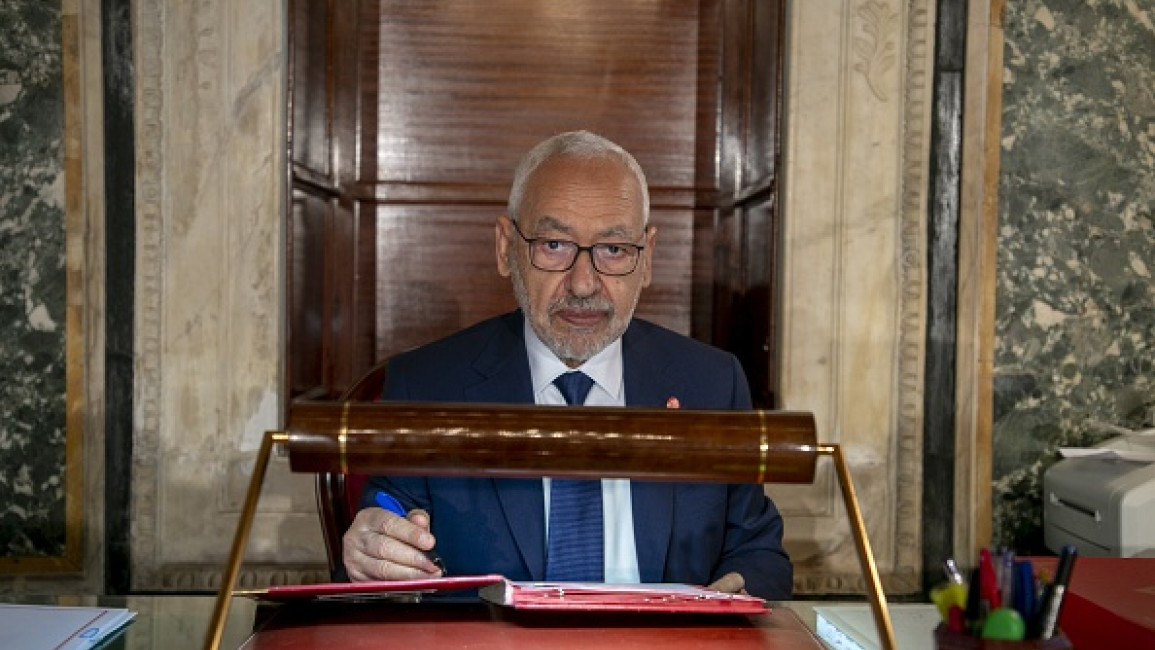Tunisia's Ghannouchi forming 'national front' to counter president
The leader of Tunisia’s Islamist party and speaker of parliament said on Tuesday that his party is working to form a "national front" to counter President Kais Saied's decision to suspend the legislature, fire top government officials and take control of the fragile democracy amid the country’s multi-layered crisis.
Ennahda party head Rachid Ghannouchi told The Associated Press in a video call that the goal is to pressure the president "to demand the return to a democratic system".
Ghannouchi claimed that groups that attacked his party's offices in several cities during nationwide demonstrations leading up to the president's actions on Sunday night organised online and were the same that later celebrated the president's actions in the streets of Tunis, the capital.
The groups "are closer to anarchist groups", and "attribute themselves" to the president, he alleged, rejecting the suggestion that they may be citizens expressing discontent with the nation's largest party.
Widespread concern in Tunisia and abroad has been voiced since the series of decisions by Saied to halt political life and most government action with the sudden firing of the prime minister, the defence and justice ministers and the freezing of parliament.
Ghannouchi and others were locked out of parliament on Monday.
He reiterated his statement that the moves amount to a coup, "and we have called on the president to reverse these announcements and return to the constitutional democratic order of the state".
In a pressure tactic, the Ennahda leader said his party and other parliamentary blocs are organising.
"We are moving toward escalating pressure on the president, of course peacefully … to demand the return to a democratic system and respecting the will of the Tunisian people," he said. Among pressure tactics, he cited plans for protests and sit-ins.
"We are seeking to work, not as separate parties, but as a national front building the broadest possible front in order to eventually convince the president to submit to the will of the people and return to the democratic order," Ghannouchi said.
He added that parliamentary work would continue despite the presidential freeze via digital methods, a means formally approved earlier because of the pandemic.
Saied's decisions to at least temporarily centralise decision-making and most state functions comes amid a crescendo of crises in Tunisia, battling coronavirus infections that are ravaging the nation and growing social and economic woes.
Tunisia, which ignited the Arab Spring in 2011 when protests led to the overthrow of its longtime autocratic leader, is often regarded as the only success story of those uprisings.
Tunisia’s economy was already flailing before the pandemic hit, with 18% unemployment, and young people demanding jobs and an end to police brutality protested in large numbers earlier this year.
These crises need to be addressed, "rather than seek to create other problems or to create ideological conflicts", Ghannouchi said, adding that everyone must work to prevent Tunisia "from being dragged into violence".



